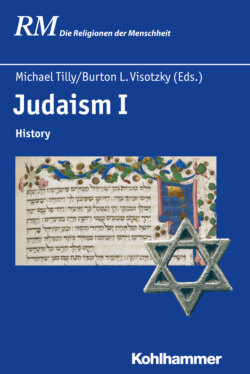Читать книгу Judaism I - Группа авторов - Страница 82
На сайте Литреса книга снята с продажи.
9 The Legal Status of Jews under Roman Rule
ОглавлениеAmnon Linder describes three arenas regarding legal status of Jews and Jewish communities in the Roman Empire prior to its Christianization in the fourth century.26 The baseline for individuals and local communities derived from Roman law—which would have had set procedures and categories for Jews merely as members of the greater Roman empire, not different in kind from any other ethnic community or individual. The relevant classifications from this perspective would not have been Jew or non-Jew, but imperial classifications such as citizen and non-citizen, territorial considerations, etc. These were the legally significant assessments of status and belonging that had determinative effects on jurisdiction. Individual Jews and regional collectives held a range of legal classifications. At the other end of the spectrum was Jewish law (halakhah), such as we can reconstruct it for this period—an arena to which the empire would have accorded jurisdiction for some religious law and to a more limited extent to civil arbitration.27 The empire generally would not have interfered in these areas of inner Jewish concern. And a third legal zone was Roman law explicitly to do with Jews as Jews—such law could confer rights or privileges (such as exemption from military duty, permission to circumcise, or to convene), or restrict Jewish freedoms (such a laws against proselytism, or the construction of synagogues, or the exaction of special taxes). At least until the 5–6th century, Jews mostly operated under the Roman common law, as provincials representing a range of class and status orientations. Their own internal courts would have had the status of arbitral only, their authority dependent on the voluntary acceptance of both parties.
Legal and social questions of Jewish status must be attentive to the many ways these arenas would have overlapped, how the laws would have changed to meet historical contingency and local situations, and how codified law may never have been enforced at all, not to mention how literary sources may distort the evidence. The legal status of the Jews under Rome in the 2nd and 3rd centuries can only be answered by first by asking, which Jews? Where? When? And according to what sources?28
